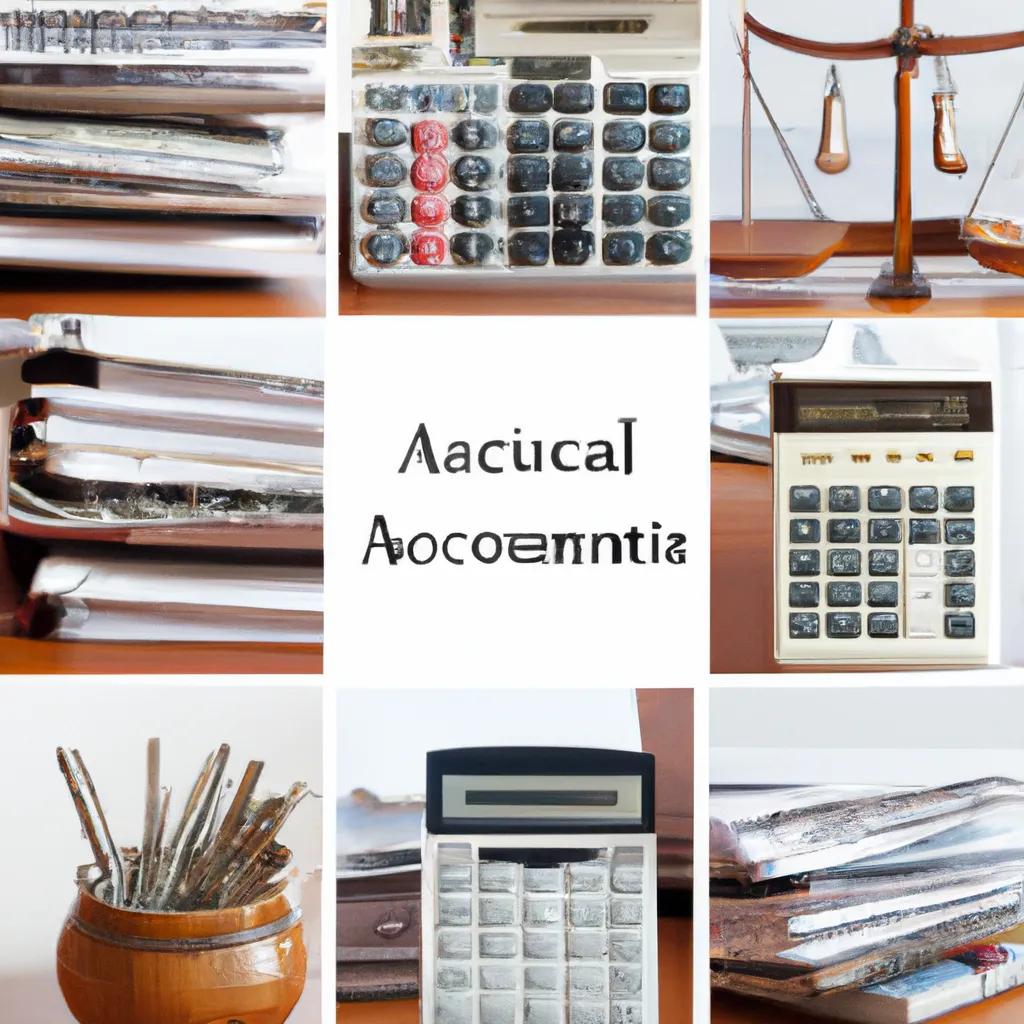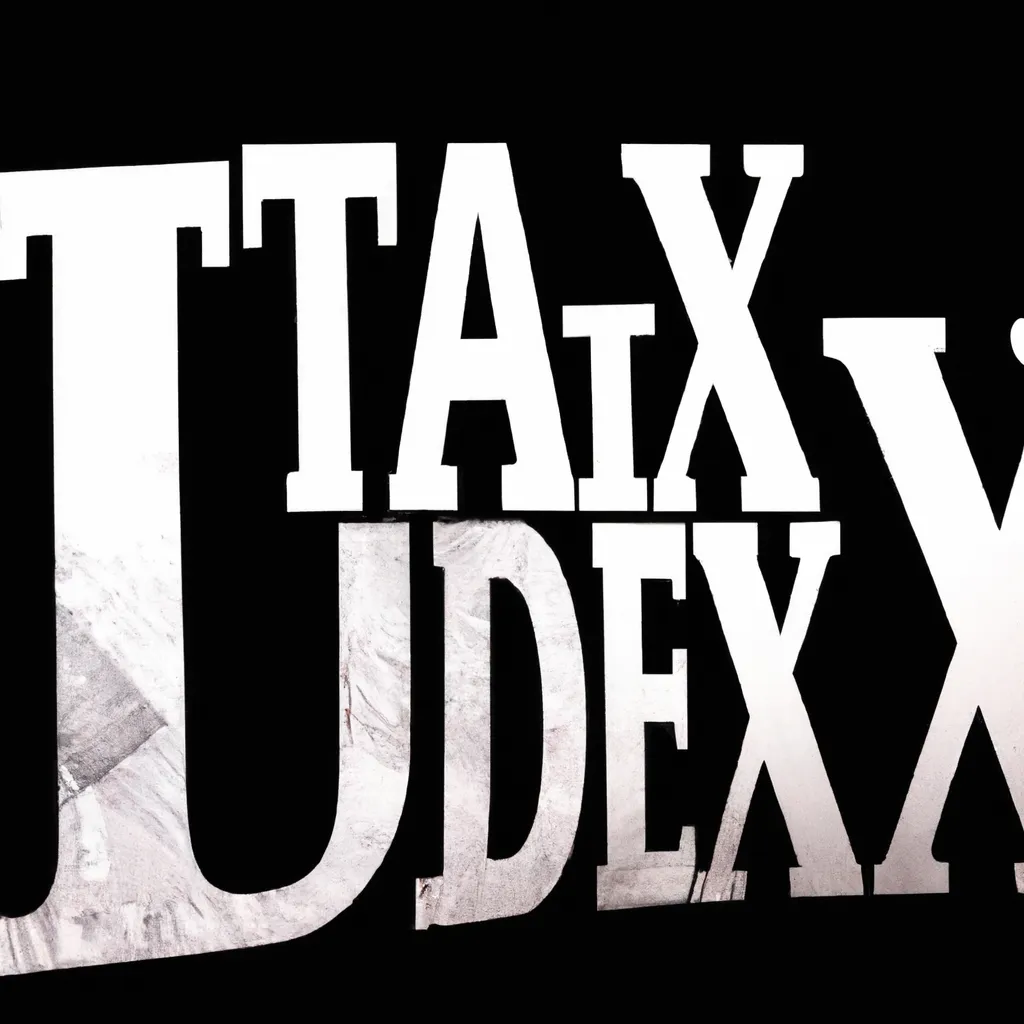Are you a taxpayer in Dudley and unsure about your obligations in terms of inheritance tax. Look no further, as we have all the essential information you need to know about Inheritance Tax in this area. Inheritance Tax is a tax payable on the estate of a person who has passed away. It is only applicable to individuals who have an estate worth over £325,000, and the current rate is 40%.
This tax must be paid within 6 months of the person's passing. Failure to do so may result in penalties and interest. To understand Inheritance Tax in Dudley more comprehensively, refer to our expert guide on the subject, written by renowned tax experts in the area. You can be sure that the information provided will be valuable and trustworthy, helping you navigate through your tax obligations with confidence.

Inheritance tax: understanding the basics
In the unfortunate event of someone's death, their assets and wealth are passed down to their loved ones. What many individuals may not realize is that these assets, whether it be property, money, or investments, may be subject to inheritance tax. Inheritance tax, also known as estate tax or death tax, is a levy paid by the beneficiaries of the deceased to the government.
What is inheritance tax?
Inheritance tax is a tax that is imposed on the assets and wealth passed down from someone who has passed away. This tax is calculated based on the total value of the deceased's estate, which includes everything they owned at the time of their death. The remaining value of the estate after any debts and expenses have been deducted is what is subject to inheritance tax.
It is important to note that inheritance tax is only applicable to assets passed down through a will or intestacy laws, not assets left through other means such as a trust or joint ownership. Additionally, some assets may be exempt from inheritance tax, such as any assets gifted to charity or those under a certain value.
How is inheritance tax calculated?
The calculation of inheritance tax can be quite complex and varies based on several factors such as the tax laws of the country in which the deceased resided, the value of the estate, and any applicable exemptions or reliefs. In general, inheritance tax rates can range from 0% to 40%, with the higher rates applying to larger estates. Some countries have a threshold for the value of the estate, meaning that only estates above a certain value are subject to inheritance tax.
In order to determine the value of the estate, all assets owned by the deceased must be accounted for, including real estate, investments, bank accounts, and personal belongings. Any debts or liabilities must also be subtracted from the total value. It is important to keep thorough and accurate records of all assets and liabilities in order to properly calculate the inheritance tax.
The importance of tax advisors for inheritance planning
With such complex calculations and varying tax laws, it is crucial to seek the guidance of a tax advisor when it comes to inheritance planning. A tax advisor, also known as a certified public accountant (cpa), is a professional who specializes in tax and financial planning. They can help navigate the intricate tax laws and provide advice on how to minimize the amount of inheritance tax your loved ones will have to pay.
A tax advisor will work closely with you to understand your estate and ensure that you are taking advantage of any available exemptions and reliefs. They can also assist in setting up trusts or other estate planning strategies to further reduce the tax burden on your beneficiaries. By working with a tax advisor, you can have peace of mind knowing that your assets will be passed down in the most tax-efficient way.
Choosing the right tax advisor in dudley
When it comes to something as important as inheritance planning, it is crucial to choose the right tax advisor for your needs. In dudley, there are many options for tax advisors, but not all are created equal. It is important to do your research and choose a tax advisor who is knowledgeable, experienced, and reputable.
One way to find a reliable tax advisor is to seek recommendations from friends, family, or colleagues who have used tax advisors in the past. You can also look for reviews and ratings online to get a better sense of a tax advisor's customer satisfaction and reputation. It is also important to schedule consultations with a few potential tax advisors to discuss their experience and fees before making a decision.
Inheritance tax is a complex and often misunderstood aspect of estate planning. By understanding the basics of inheritance tax and seeking the guidance of a tax advisor, you can ensure that your loved ones will not be burdened with a large tax bill upon your passing. Remember to do your research and choose a reputable tax advisor in dudley to help you plan your estate and minimize your inheritance tax liability. With careful planning and the right guidance, you can leave a lasting legacy for your loved ones.

Inheritance tax in dudley: what you need to know
Inheritance tax, also known as the “death tax,” is a tax that is levied on the estate of a deceased person. The purpose of this tax is to transfer wealth from one generation to the next, and it can have a significant impact on the beneficiaries of the estate. If you live in dudley, or have inherited assets from someone who lived in dudley, it is important to understand the basics of inheritance tax and how it may affect you.
Understanding inheritance tax
Inheritance tax is calculated based on the value of the assets that a person leaves behind after their death. This can include property, investments, cash, and possessions such as jewelry or artwork. In the uk, there is a tax-free allowance of £325,000, meaning that the first £325,000 of the deceased person's estate is exempt from inheritance tax. Anything above this amount is subject to a tax rate of 40%. However, there are certain exemptions and reliefs that may apply, such as the spousal exemption, which allows a person to pass on their entire estate to their spouse or civil partner tax-free.
Inheritance tax is often a complex and confusing topic, which is why it is recommended to seek the advice of tax advisors or a certified public accountant (cpa) if you are unsure about your own circumstances.
Inheritance tax in dudley
If you live in dudley, or have inherited assets from someone who lived in dudley, you will be subject to the same inheritance tax laws and regulations as the rest of the uk. However, there are some additional considerations for dudley residents to keep in mind.
First, dudley is located within the west midlands region, which has one of the highest average property prices in the uk. This means that residents in dudley may have a higher value of assets, and therefore may be more likely to exceed the tax-free allowance and be subject to inheritance tax.
Second, dudley is known for its strong family ties and close-knit communities. This can often lead to families passing on wealth and assets from one generation to the next, which can trigger inheritance tax. It is important for dudley residents to plan and manage their estate carefully to minimize the impact of inheritance tax on their beneficiaries.
Why you need tax advisors or a cpa
The tax laws and regulations surrounding inheritance tax can be complex and overwhelming, especially for those who are not familiar with tax law. This is why it is essential to seek the advice of tax advisors or a cpa who specialize in inheritance tax in dudley.
These professionals can review your assets and provide expert advice on how to minimize your inheritance tax liability. They can also help you navigate through any relevant exemptions or reliefs that may apply in your situation. By working with tax advisors or a cpa, you can ensure that you are not paying more inheritance tax than necessary, and that the wealth you are passing on to your loved ones is protected.
Final thoughts
Inheritance tax is a complex and often misunderstood topic, but it is important for dudley residents to have a basic understanding of it in order to plan and manage their estate effectively. With the help of tax advisors or a cpa, you can minimize the impact of inheritance tax on your beneficiaries and ensure that your wealth is passed on according to your wishes.
So before you make any decisions regarding your estate and assets, make sure to consult with these professionals and stay informed about the latest inheritance tax laws and regulations in dudley and the uk. By doing so, you can secure a better financial future for your loved ones.
Inheritance tax: a comprehensive guide
If you're a resident of dudley, you may be well aware of the potential impact of inheritance tax on your estate and loved ones. This tax is levied on the assets passed down from one generation to the next, and with the current threshold set at £325,000, it's a major concern for many individuals and families.
When it comes to inheritance tax, it is important to be proactive and plan ahead to ensure that your assets are distributed according to your wishes and to minimize any unnecessary taxes. In this comprehensive guide, we will discuss the basics of inheritance tax, the role of tax advisors and cpas, and provide valuable tips on how to effectively manage your estate.
Understanding inheritance tax
Inheritance tax is a tax levied on the assets of a deceased individual, also known as the ‘estate.' these assets can include property, investments, savings, businesses, and other valuable possessions. The tax is applied on the amount that exceeds the current threshold set by the government.
For example, if the value of your estate is £400,000 and the threshold is £325,000, then inheritance tax will be applied on the £75,000 difference. The current inheritance tax rate is 40%, which means that £30,000 will be owed to the government.
While this may seem like a high tax rate, it's important to note that there are certain exemptions and reliefs that can help reduce your inheritance tax liability. These include gifts to charities, spouse, and civil partners, as well as the ‘residence nil rate band' for passing down a main residence to direct descendants.
The role of tax advisors and cpas
When it comes to inheritance tax, seeking professional help is highly recommended. Tax advisors and cpas are experts in tax laws and can provide valuable insights on how to manage your estate in the most tax-efficient manner.
One of the main roles of a tax advisor or cpa is to help you understand your potential inheritance tax liability and identify any available exemptions and reliefs that can help reduce it. They can also advise on the most beneficial distribution of your estate to ensure that your loved ones are taken care of while minimizing the tax burden.
Additionally, a tax advisor or cpa can assist you in creating an inheritance tax plan that is tailored to your specific situation and goals. They can help you explore options such as setting up trusts, gifting assets, and making use of any available reliefs before reaching the current threshold.
Tips for managing your estate
Aside from seeking professional help, here are some valuable tips to consider when managing your estate and minimizing your inheritance tax liability in dudley:
Start planning early
One of the biggest mistakes many individuals make is leaving their inheritance tax planning until it's too late. By starting early, you can explore all the available options and implement a more effective tax plan that aligns with your wishes and goals.
Make use of annual exemptions
Each tax year, you are allowed to gift up to £3,000 without it being subject to inheritance tax. This means that you can gift money to your loved ones while reducing your potential tax liability.
Consider setting up a trust
Setting up a trust can be a tax-efficient way of passing down assets to your loved ones while still maintaining some control over how they are managed. Trusts can also help avoid the probate process, saving time and money for your beneficiaries.
Stay updated with tax laws
Tax laws are subject to change, and it's important to stay informed and updated on any changes that may affect your estate. Consult with a tax advisor or cpa regularly to review your inheritance tax plan and make any necessary adjustments.
Inheritance tax in dudley can be a complex and daunting subject. However, with proper planning and the guidance of a tax advisor or cpa, you can effectively manage your estate and minimize your tax liability. Remember to start planning early, make use of annual exemptions, and stay updated with tax laws to ensure that your assets are distributed according to your wishes. With the right approach, you can protect your loved ones and leave a lasting legacy without the burden of excessive taxes.
Inheritance tax in dudley: what you need to know
Inheritance tax, also known as estate tax, is a tax on the transfer of assets upon someone's death. This tax is a major concern for many individuals and families in dudley, as it can significantly reduce the value of their inheritance. If you are a resident of dudley or are planning to receive or leave behind an inheritance in the area, it is important to have a good understanding of inheritance tax and seek advice from tax advisors or a certified public accountant (cpa) to minimize its impact.
Who is subject to inheritance tax?
Inheritance tax is usually paid by the executor of the deceased's estate, but it can also be paid by the inheritor of the assets. In dudley, inheritance tax is paid on estates that are worth more than £325,000. For married couples and civil partners, this threshold is doubled to £650,000. If the estate's value falls below this threshold, then no inheritance tax is due.
It is worth noting that inheritance tax is calculated based on the total value of the estate, including property, investments, and any gifts made within seven years prior to the individual's death. Additionally, certain assets, such as those held in a trust, may not be subject to inheritance tax.
Effective inheritance tax planning in dudley
As inheritance tax can significantly reduce the value of your estate, it is important to have a solid plan in place to minimize its impact. Seek advice from professional tax advisors or a cpa in dudley who can guide you through effective tax planning strategies that best suit your individual circumstances. Some common strategies to consider include:
- creating a trust to hold your assets and potentially reduce the value of your estate subject to inheritance tax.
- using your annual gifting allowance of £3,000 to gift assets to your loved ones tax-free each year.
- including a charitable donation in your will to reduce your estate's taxable value.
- making use of business property relief to pass on your business without incurring inheritance tax.
The importance of seeking professional advice
Inheritance tax laws can be complex and ever-changing, making it crucial to seek professional advice from tax advisors or a cpa who have a deep understanding of the tax system in dudley. They can help you navigate through the complex tax laws and create a customized plan to reduce your inheritance tax liability.
It is also important to keep in mind that the amount of inheritance tax payable may vary depending on the individual's circumstances. For example, there may be additional exemptions or reliefs available if the deceased was a widow, widower, or a surviving civil partner.
The consequences of not planning for inheritance tax
Without proper planning, inheritance tax can have a significant impact on the value of your estate and the inheritance received by your loved ones. In some cases, assets may need to be sold to pay the tax liability, which can further reduce the value of the estate.
Moreover, not planning for inheritance tax can also cause disputes between family members and lead to complex legal battles. It is never too early to start planning and seeking professional advice can help avoid these potential consequences.
In summary, inheritance tax is a major concern for many individuals and families in dudley. It is a tax on the transfer of assets upon someone's death and can significantly reduce the value of the estate. Effective tax planning, with the help of experienced tax advisors or a cpa, is crucial in minimizing the impact of inheritance tax and preserving the value of your estate for your loved ones. So, make sure to seek professional advice and plan ahead to reduce the burden of inheritance tax in dudley.

